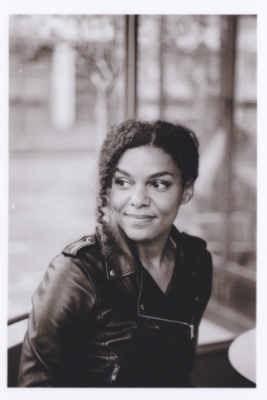|
Amid the current pandemic and the climate of rising populism and political tensions, the issue of inequity—be it racial, social, economic, gendered, biopolitical, or intersectional—has become particularly acute. Contemporary Western capitalist societies’ failure both to acknowledge these inequities and to achieve greater equity not only constitutes a common, critical concern within transatlantic contemporary thought, but also represents the most urgent political and philosophical problem of our ages. The Center for French and Francophone Studies at Duke has asked several French-speaking intellectuals, from a wide range of humanistic disciplines, to share their own approaches to this concept of inequity and to analyze its crucial contemporary relevance. Lectures by Nadia Yala Kisukidi (Université Paris VIII), Jean-Luc Nancy (Université de Strasbourg), Didier Fassin (Princeton, Institute for Advanced Study), Souleymane Bachir Diagne (Columbia University), Felwine Sarr (Duke University), and Laure Murat (UCLA) TBA. |
Pap Ndiaye, "Black Lives Matter in France: A Historical Perspective" (Thursday, September 17, 2020)
This talk will analyze current French movements against police brutalities and racism (Black Lives Matter and other grassroots organizations) from a historical perspective (1920s-2000s). The French uprisings have most often been viewed as offshoots of the American unrest following the murder of George Floyd. Ndiaye's intervention will highlight more local developments, taking into account their connection to the U.S. as well as their own contextual dynamics and historical trajectories.
Pap Ndiaye is a Professor of History at Sciences Po (Paris, France). His areas of interest are the history and sociology of African Americans and people of African descent in France. Together with Patrick Lozès, Ndiaye co-founded the Action Committee for the Promotion of Diversity in France.
Didier Fassin, "The Value of Life: Inequality in the Time of the Coronavirus" (Thursday, October 8, 2020)
As the threat of the pandemic became clearer, most countries applied very strict measures, including an interruption of most activities. These efforts were costly for fundamental liberties, in the short term, and entailed great social consequences, in the longer term. The reason for this dual sacrifice was to save lives. This lecture will focus on two questions: what life? and whose lives? Case studies will be drawn from research conducted in France, with interviews carried out with high officials and fieldwork done in several prisons and migrant shelters. Comparisons will be drawn with the United States.
Didier Fassin is James D. Wolfensohn Professor of Social Science at the Institute for Advanced Study in Princeton, Director of Studies at the École des Hautes Études en Sciences Sociales in Paris, and Chair in Public Health at the Collège de France, where his inaugural lecture was titled "De l’inégalité des vies." An anthropologist, sociologist and physician, he has studied moral and political issues in contemporary societies, especially in Senegal, Ecuador, South Africa, the United States and France. He recently authored The Will to Punish (Oxford UP), Life: A Critical User’s Manual (Polity Press), and Death of a Traveler: A Counter Investigation (in press).
Nadia Yala Kisikudi, "Race and Hospitality" (Thursday, October 29, 2020)
How can we talk about “race” in France today? And should we do so? Is the use of this concept relevant to understanding the experience of anti-Black racism in a country that openly claims its own attachment to universalism? The aim of this lecture is not to extend an on-going critique of universalism through a certain minority experience, but to explain the complexities in using the idea of race to sustain a certain sense of community. The inherent difficulties and contradictions in the notion of race will be described and analyzed through texts and political practices that deal with the Black French experience.
Nadia Yala Kisukidi was born in Brussels, to a Congolese (DRC) father and a Franco-Italian mother. She is currently an Associate Professor of philosophy at Paris 8 Vincennes-Saint-Denis University, and an Adjunct Director of the research center “Les logiques contemporaines de la philosophie” (LLCP). She was Vice-President of the Collège International de Philosophie (2014-2016) and a member of the Critical Time editorial committee (Duke University). She is now a co-curator of the Yango II Biennial in Kinshasa / RDC. Kisukidi specializes in French and African philosophy. Since becoming a professor, she has taught in Switzerland and France and has contributed to the creation of a « Global South » research network between Haïti, France and Colombia. She has also published many books (individual and collective works) and philosophical articles.
Jean-Luc Nancy—"Les Fondements de l'Égalité" (Thursday, November 12, 2020)
Current events related to both economics and the virus bring to the fore the issue of equality—or lack thereof. We have a tendency to consider all humans to be innately equal, but upon closer examination this proposition is null. On what, then, can equality be founded if there is no natural or supernatural basis? On nothing?
Jean-Luc Nancy is a philosopher and Professor Emeritus at the Marc Bloch University in Strasbourg (where he used to teach) and has also been a Visiting Professor at several foreign universities (UCLA, Berlin Freie Universität). He is the co-director of the series "La philosophie en effet" (“Philosophy in Effect) for Editions Galilée, as well as a member of the editorial board of Espace Maurice Blanchot and the Scientific Committee for the complete works of Emmanuel Levinas. Nancy is one of the most important thinkers within post-Heideggerian European philosophy. In his works, which have been devoted to themes lik body and adoration, to name just a couple, reflections on the arts and collaborations with artists have been of primary importance. Nancy has famously reopened the question of the grounds of community and politics with his work La communauté désoeuvrée (The Inoperative Community) to which Maurice Blanchot and Giorgio Agamben responded with The Unavowable Community (1983) and The Coming Community (1983) respectively. He was the subject Jacques Derrida’s only book dedicated to a contemporary philosopher, entitled Jean-Luc Nancy, le toucher. He has written numerous books, notably L'expérience de la liberté (The Experience of Freedom, Galilée, 1988), Le sens du monde (The Sense of the World, Galilée, 1993), Être singulier pluriel (Being Singular Plural, Galilée, 1996), La création du monde ou la mondialisation (Galilée, 2002), La déclosion (The Deconstruction of Christianity, Galilée, 2005), Noli me tangere (Bayard, 2003), L’Adoration (The Adoration, Galilée 2010), and Blanchot. Passion politique (Galilée 2011). Nancy’s books have been translated into several languages and have appeared in several countries (USA, Italy, Japan, Germany, Russia, Finland, Korea, Spain). His most recent opus is La Peau fragile du monde, published in 2020.
Souleymane Bachir Diagne: On Inequity and the Open Society (February 12, 2021)
The devastation of the pandemic has shed a harsh light on the inequities that tear us apart and is confronting us with the choice between a global politics of humanity or a politics of tribes. This lecture examines the fundamental global inequality manifested by the north/south divide and presents the Bantu concept of ubuntu, as illustrated by Nelson Mandela and Desmond Tutu, and the Wolof notion of nite, often evoked by Léopold Sédar Senghor, as foundations for a politics of an open society as described by Henri Bergson.
Souleymane Bachir Diagne is a professor of Philosophy and Francophone Studies at Columbia University and the Director of the Institute of African Studies. His Mields of research and teaching include history of philosophy, history of Logic and mathematics, Islamic philosophy, African Literature and Philosophy. His most recent publications in English are: Open to Reason: Muslim Philosophers in Conversation with the Western Tradition, New York, Columbia University Press, 2018; Bergson postcolonial, New York, Fordham University Press, 2019; In Search of Africa(s). Universalism and Decolonial Thought (co-author: Jean-Loup Amselle), Cambridge, UK and Medford, MA, Polity Press, 2020.
Felwine Sarr, "Cosmopolitique de l'hospitalité / Cosmopolitics of Hospitality" (Friday, March 12, 2021)
Hospitality, the receiving of a newcomer who is initially a stranger, has often been considered an obligation at the heart of basic interactions in human societies. Emmanuel Kant, by asserting that “every stranger has the right to not be treated as the enemy,” has turned the idea of hospitality into an ethical question. The question that I explore, which is part of the project of creating a shared world, is how to shift from the ethical obligation of hospitality to a right to hospitality. It is a question of transitioning from hospitality as a favor to hospitality as a right, by establishing a pragmatic principle that would be part of a cosmopolitics of hospitality as a response to the impasses of migration policies of a world that inexorably experiences its cosmopolitan condition.
Felwine Sarr is a Senegalese scholar and writer. He is the Anne-Marie Bryan Distinguished Professor of Romance Studies at Duke University in North Carolina, having arrived at Duke from the Université Gaston Berger in Saint-Louis in Senegal, where he is a tenured professor with an agrégation in economics.
Respondent: Professor Achille Mbembe (Wits Institute for Social and Economic Research at the University of the Witwatersrand).
Laure Murat, "What Will Yesterday Be Made Of? Reflections On Cancel Culture" (April 29, 2021)
Since George Floyd’s death, statues of Confederates and colonizers have been toppled all over the world. What cancel culture, considered as “alt-left fascism” by Donald Trump, does teach us about a racist continuum and its translation in the public space? What solutions could be found? What historical knowledge can be elaborated based on an activist momentum, the most important since the Civil Rights movement?
Laure Murat is Professor at UCLA. Historian and writer, she specialized in history of psychiatry and gender studies, and teaches literature. She is the author of several books, including La Maison du Docteur Blanche (Lattès, 2001, Goncourt Prize of Bibliography), Passage de l'Odéon (Fayard,2003), La Loi du Genre (Fayard, 2006), The Man who Thought He Was Napoleon (Chicago University Press, 2014, Femina Prize for Non-Fiction), Relire (Flammarion, 2014), and Une Révolution sexuelle? Réflexions sur l'après-Weinstein (Stock, 2018).
Respondents: Professor Anne Garréta, Camille Chanod, and Lorenza Starace

